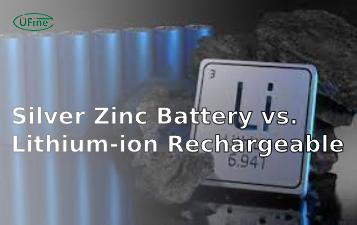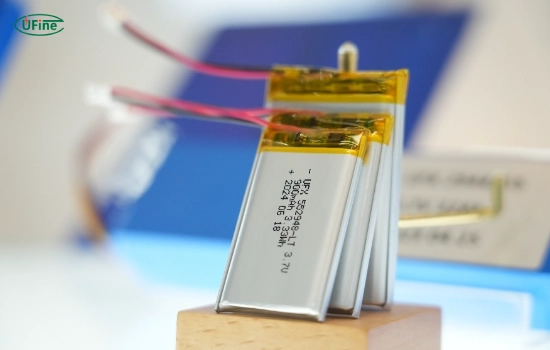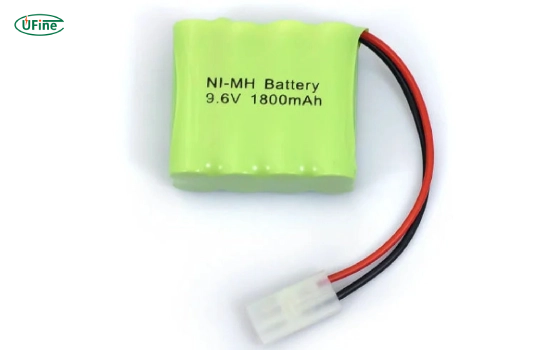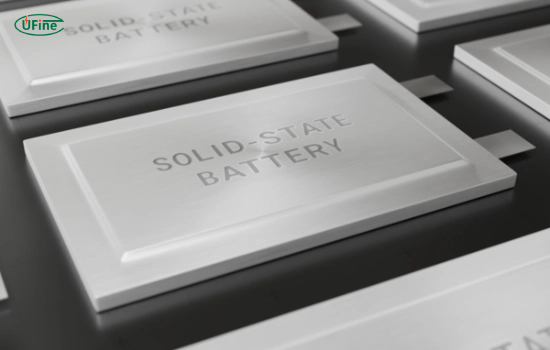
- Part 1. Battery basics
- Part 2. Lithium-ion batteries: the popular choice
- Part 3. Nickel-metal hydride batteries: a proven alternative
- Part 4. Solid-state batteries: the future of power
- Part 5. Lithium-ion vs nickel-metal hydride vs solid-state battery: performance, environmental Impact, and cost
- Part 6. Lithium-ion vs nickel-metal hydride vs solid-state battery: applications and suitability
- Part 7. FAQs
In the fast-paced world of battery technology, three leading contenders compete for dominance: Lithium-ion (Li-ion), Nickel-metal Hydride (NiMH), and Solid-state batteries. Each type has unique attributes, advantages, and disadvantages. This article aims to provide a clear and comprehensive comparison of these technologies, highlighting their features, applications, and performance to determine which is best suited for various needs.
Part 1. Battery basics
Before diving into each battery type, let’s cover some basics. Batteries store and release energy through electrochemical reactions. They consist of three primary components: the anode, cathode, and electrolyte. The anode and cathode are electrodes where chemical reactions occur, while the electrolyte allows ions to move between them.
Part 2. Lithium-ion batteries: the popular choice
Lithium-ion batteries have become incredibly popular, powering everything from smartphones to electric vehicles (EVs). Their widespread use is due to several key attributes:
2.1 High Energy Density
Li-ion batteries have a high energy density, meaning they can store much energy relative to their size and weight. This is crucial for portable electronics and EVs with limited space and weight.
2.2 Low Self-discharge
These batteries have a low self-discharge rate, retaining their charge for extended periods when not in use, making them convenient for users.
2.3 Long Cycle Life
Li-ion batteries also offer a long cycle life, meaning they can go through many charge and discharge cycles before their capacity significantly drops, which makes them cost-effective over time.
2.4 Drawbacks
- Thermal Runaway: Li-ion batteries can be prone to thermal runaway, leading to overheating and, in rare cases, fires.
- Environmental and Ethical Issues: The extraction of lithium and other materials can have environmental and ethical issues.
- High Cost: They are generally more expensive compared to other battery types.
Part 3. Nickel-metal hydride batteries: a proven alternative
Nickel-metal hydrogen (NiMH) batteries have been around for a long time. They find frequent use in hybrid vehicles, power tools, and consumer electronics.
3.1 Environmental Friendliness
NiMH batteries are more environmentally friendly than Li-ion batteries because they use non-toxic materials, making them easier to recycle and less harmful to the environment.
3.2 Safety
One of the main advantages of NiMH batteries is their safety. They are less likely to overheat and do not pose the same fire risks as Li-ion batteries.
3.3 Moderate Energy Density
While NiMH batteries have a lower energy density than Li-ion batteries, they still provide enough energy for many applications, especially where weight and size are not critical factors.
3.4 Drawbacks
- Memory Effect: A significant downside of NiMH batteries is the memory effect, where the battery loses capacity if not fully discharged before recharging. This can reduce the battery’s efficiency over time.
- Lower Energy Density: They have a lower energy density than Li-ion batteries, making them less suitable for applications where size and weight are critical.
- Higher Self-discharge Rate: NiMH batteries have a higher self-discharge rate than Li-ion batteries, meaning they lose their charge faster when not in use.
Part 4. Solid-state batteries: the future of power
Solid-state batteries are an emerging technology that promises to revolutionize the battery industry. Unlike traditional batteries, they use a solid electrolyte.
4.1 Higher Energy Density
Solid-state batteries can achieve higher energy densities than Li-ion batteries, allowing them to store more energy in the same space, which is beneficial for EVs and portable electronics.
4.2 Enhanced Safety
Using a solid electrolyte reduces the risk of thermal runaway and fires, making solid-state batteries much safer than those with liquid electrolytes.
4.3 Longer Lifespan
Solid-state batteries are expected to have a longer lifespan due to their stability and resistance to degradation, resulting in fewer replacements and lower costs over time.
4.4 Drawbacks
- Manufacturing Complexities: Despite their potential, solid-state batteries face challenges such as manufacturing complexities and high production costs, which hinder their widespread adoption.
- High Production Costs: The current production costs are very high, making them less commercially viable.
- Limited Availability: Solid-state batteries are not widely available, limiting their use to experimental and high-cost applications.
Part 5. Lithium-ion vs nickel-metal hydride vs solid-state battery: performance, environmental Impact, and cost
To understand which battery technology is superior, let’s compare their performance, environmental impact, and costs across various metrics:
5.1 Performance Comparison
5.1.1 Energy Density
- Lithium-ion: High (150-200 Wh/kg)
- Nickel-metal Hydride: Moderate (60-120 Wh/kg)
- Solid-state: Potentially very high (300+ Wh/kg)
5.1.2 Safety
- Lithium-ion: Moderate (risk of thermal runaway)
- Nickel-metal Hydride: High (safer than Li-ion)
- Solid-state: Very high (minimal risk of fire)
5.1.3 Cycle Life
- Lithium-ion: Long (500-1000 cycles)
- Nickel-metal Hydride: Moderate (300-500 cycles)
- Solid-state: Potentially very long (1000+ cycles)
5.2 Environmental Impact
5.2.1 Lithium-ion Batteries
Mining lithium and cobalt used in Li-ion batteries raises environmental and ethical concerns. Efforts are ongoing to develop recycling technologies and improve the sustainability of these materials.
5.2.2 Nickel-metal Hydride Batteries
NiMH batteries are more environmentally friendly due to the use of non-toxic materials. However, nickel mining still has environmental impacts that need addressing.
5.2.3 Solid-state Batteries
Solid-state batteries could offer a more sustainable solution with their potential use of more abundant and less harmful materials. Research focuses on reducing their environmental footprint.
5.3 Cost Considerations
5.3.1 Current Costs
- Lithium-ion: Moderate to high
- Nickel-metal Hydride: Moderate
- Solid-state: Currently very high
5.3.2 Future Cost Projections
As technology advances and production scales up, experts expect the costs of solid-state batteries to decrease significantly, making them more competitive with Li-ion and NiMH batteries.
Part 6. Lithium-ion vs nickel-metal hydride vs solid-state battery: applications and suitability
Each battery type is suited to specific applications:
6.1 Consumer Electronics
Lithium-ion batteries are preferred for consumer electronics due to their high energy density and compact size, making them ideal for smartphones, laptops, and other portable devices.
6.2 Electric Vehicles
Both Li-ion and NiMH batteries power electric and hybrid vehicles. Fully electric cars favor Li-ion batteries for their superior energy density and extended range. NiMH batteries, however, are often found in hybrid cars where safety and cost are key considerations.
6.3 Renewable Energy Storage
Solid-state batteries are promising for renewable energy storage like solar power systems due to their long lifespan and high energy capacity. However, Li-ion batteries are currently the primary choice until solid-state costs decrease.
6.4 Medical Devices
Medical devices such as blood pressure monitors and glucose meters commonly use lithium-ion batteries due to their reliability and energy density. Solid-state batteries, such as pacemakers and implantable devices, are also being explored for medical devices where enhanced safety and longevity are critical.
Part 7. FAQs
-
What makes Lithium-ion batteries popular in consumer electronics?
Their high energy density, compact size, and long cycle life make Lithium-ion batteries the preferred choice for smartphones, laptops, and other portable devices. -
Which battery is better, NiMH or lithium-ion?
Lithium-ion batteries are generally better than NiMH batteries for many applications. They are lighter, have higher energy density, and maintain their charge better over time. NiMH batteries, however, are more cost-effective and environmentally friendly because they don’t contain toxic metals like cadmium. -
Which is better, a solid-state battery or a lithium battery?
Solid-state batteries are the future because they promise higher energy density, longer lifespan, and improved safety compared to traditional lithium-ion batteries. They use solid electrolytes instead of liquid ones, reducing the risk of leaks and overheating. -
Which is better, NiCd or Li-ion?
Lithium-ion batteries (Li-ion) are generally better than NiCd (Nickel Cadmium) batteries due to their higher energy density, lighter weight, and lack of memory effect. NiCd batteries, while robust and able to handle high discharge rates, are less environmentally friendly due to their cadmium content. -
Do solid-state batteries use nickel or lithium-ion?
Solid-state batteries can use various chemistries, but they do not use liquid electrolytes like traditional lithium-ion batteries. Instead, they use solid electrolytes, which manufacturers base on different materials such as lithium, sodium, or other elements, depending on the design.
Related Tags:
More Articles

What is the Difference Between Silver Zinc Battery vs. Lithium-ion Rechargeable?
Compare silver zinc and lithium-ion rechargeable batteries: energy density, cycle life, safety, cost, and uses in drones, medical devices, EVs, and electronics.
What are Watts and Watt Hours in Battery?
Understand watt vs watt-hour in batteries: key differences, how to calculate capacity, and why they matter. Includes free comparison table.
Best 10 Blood Pressure Monitor Battery Review: Finding the Most Reliable
Are you looking for a reliable Blood Pressure Monitor battery? Here is a complete guide with the top 10 best blood pressure monitor batteries.
Bluetooth Headphone Battery Guide: All You Need to Know
Maximize headphone battery life with expert tips! Learn how to charge, check, troubleshoot, and choose the best bluetooth headphone battery in 2025.
LiFePO4 Battery VS. Lithium-ion Polymer Battery: Which One Is Best?
Comprehensive comparison of LiFePO4 vs Lithium Ion Polymer batteries: energy density, safety, lifespan, cost. Find out which battery suits your needs in 2025.





